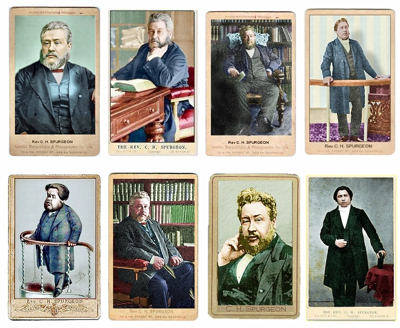by Dan Phillips
The
first word which I wrote unto you, O Pyrophilus—and the
second—related the Lord's dealings in my life. They started in the eternal counsels of the Trinity, and worked out in my own history, culminating in my conversion on
February 11, 1973.
But my conversion featured some aspects that probably raised an eyebrow or three hundred. I spoke of a voice, I read C. S. Lewis, I "walked the aisle," I was read the Four Spiritual Laws, I "prayed the prayer."
Plus, one's conversion can be instructive (1 Timothy 1:16). And so, now, these observations, musings, questions, and/or lessons:
1. Do not decide that any living person cannot be saved. Know that I was
virulently anti-Christian. I was known campus-wide as a Christian-hater. I was, if you will,
evangelistically anti-Christian. I was like Elymas in Acts 13: if I saw evangelism going on, I did my best to foil it. I was arrogant, cocky, foul-mouthed, condescending; "formerly I was a
blasphemer, persecutor, and insolent opponent" (1 Timothy 1:13). I had contempt for my fellow-cultists who had a "live and let live" attitude towards Christianity. If Christians were engendering false fear, and giving false hope, they should be stopped. And I aimed to stop them.
I'm not sure whether Greg knew all this or not. If he did, it didn't deter him. You see, it says, "The saying is trustworthy and deserving of full acceptance, that Christ Jesus came into the world to save sinners, of whom I am the foremost" (1 Timothy 1:15). So this person you're thinking of
not witnessing to—is he really nasty? Is he dead-set against Christ? Is he smarmy, sarcastic, cutting, smug? So then, are you saying that he is a
sinner?
Well then, that's
great news. See that is
exactly the sort Christ came to save. Do not assume that this man or woman is beyond the Gospel. Tell him the truth of Christ straight, with intelligence and love, and leave the rest to God.
2. Sow with hope. Greg was not the first Christian to try to talk to me. Many Christians tried to talk to me, and I blew them off. Some of them have (reportedly) long-since apostatized. Others surely prayed for me. The Lord heard their prayers, and broke up the hard soil of my heart, so that I could receive the good seed, hold it fast, and bear fruit (cf. Mark 4). Not right away. But eventually.
3. There is no one method of evangelism. Which is the right way to deal with people? The

way Jesus dealt with Nicodemus? Or the very different way He dealt with the Syro-Phoenecian woman, or the distraught father in Mark 9:14-27? Or the woman at the well in John 4? Or the rich young ruler? Or Zacchaeus? Which was the right way?
Of course they all were the right way. Legitimate commonalities can be found among them. Nevertheless, if one doesn't also acknowledge significant differences in tone and approach, one is reading the texts through
funny glasses.
To be specific, I believe God has used street preaching. He's used "cold" evangelism, that doesn't necessarily have much more context than, "Nice day. So, has anyone ever told you about Jesus Christ?" God has used tracts (even bad ones), videos, books, billboards, "friendship" evangelism, door-to-door. And He has used altar calls.
If Greg had said to me that first day, after I got into his car, "Did you know that God loves you and Jesus died for your sins," I might have argued, or I might have said "Yes and not interested, respectively." But that would have been our last conversation; I'd just have walked home from then on. It would have slammed my mind shut.
Instead, Greg befriended me, and took the slower approach of building a rapport and credibility, though he had specifically pointed to the door on our first conversation. But it was no pressure; no
personal pressure.
Then later, the Holy Spirit applied all the pressure that was needed, and I needed to talk to someone, and Greg was just the man--because I knew he, and his faith, were genuine.
People aren't all plastic figures. They're (we're) complex individuals. One size does not fit all.
4. Show the way of God, but show love as well. I had no interest in hearing about the former from Greg until I'd seen the latter. I think professional, full-time arguers have an important ministry. But their ministry isn't most of ours. Most of us need to do the hard work of showing love, so as to create a context for the Gospel. It isn't our love that saves anybody, it's the Gospel (Romans 1:17). But it can be our love that makes anyone willing to
hear the Gospel
from us. Shining as lights in the world (Philippians 2:15) means more than being able articulately to describe light, and contrast it from its opposite. It means showing forth its qualities in a credible witness. It means integrity, and integrity means (among other things) love and grace.
5. Be real. Fairly or (more probably) unfairly, I saw most Christians as sloganeering, shallow, plastic, hypocritical fools. If Greg had only unctuously said, "Yes, friend, I once had problems just as you do. But Jesus fixed all that up, and now I'm perfect and happy all the day!", I'd've cocked an eyebrow, and become scarce. Instead, Greg affirmed that he'd seen the same inside himself that I was discovering within my own heart. He was "a man of like passions." That's helped me want, ultimately, to hear the Word from him. He could point me towards solutions, but they'd been solutions he'd needed and used first.
6. God saves perfectly through imperfect means. It's odd that I should need to make this point to Reformed readers, yet here we are. Who saves? We Reformed loudly shout, "God!" God is the one who foreknows, calls, justifies, glorifies (Romans 8:29-30). God is the one who

draws, gives live, redeems, saves.
But He does all this through means (Romans 10:13-17), and those means are
without exception (except, I suppose, in cases where someone is converted reading the Hebrew OT or the Greek NT, alone)
imperfect means. Or do you think that
your evangelism is the exception to that rule? If so, God help you, God help your hearers, and God help those who don't share your perfection.
A brief aside: you may have noted that I did read the Bible before and through the process. I had "studied" the Gospels, enough to be bothered by them. And as I came under conviction, I read the Gospel of John.
There is, to be sure,
irony in the fact that God used means in my conversion that I myself would not use today, in evangelism. But if you bristle at my insistence that God
used these imperfect means, please re-read my testimony (especially
part two) more carefully. You and I share legitimate concerns about what the Four Spiritual Laws, Lewis, and altar calls might either mis-communicate, or leave out. We are concerned about a smaller Savior, a less sinful man, a less sovereign God, a more exalted view of free-will and human decision-making. among other things. These are legitimate concerns.
But NONE of those things made an impact on me, because GOD was using the truth in them to save me.
Read my testimony, and you will see that the elements in all those sources that God pressed home upon my mind were my lostness, my hopelessness, my unbridgeable distance from God due to my sin, Christ's Lordship and Deity, Christ's truth, Christ's uniqueness, and the fact that God called me to find forgiveness through faith in the Jesus Christ presented in the Bible alone.
I daresay that if you have trouble with
that Gospel, you have trouble with
the Gospel.
So suppose some precise soul had waylaid me on my way down the aisle, dragged me into a side-room, and asked me, "So, you think Jesus is just some problem-solving Mr. Fixit who is at your beck and call, some glorified embodiment of myths and legends, waiting helplessly down at the front of this aisle for your free-will to activate Him at your command? You think you're going to go save yourself? Is that it, hippie-boy?"
I might have said, "I don't know about any of that. But I am convinced that I need Jesus, God's only Son, to save me from the ruin of sin and [garbage] that is me, and bring me to God. Someone down there is going to help me find out how. Jesus is my only hope. Don't try to stop me; I don't want to have to hurt you [cf. Matthew 11:12]—especially in church."
So if your or my view of evangelism leaves us feeling superior to other Jesus-preaching Christians (
pace Philippians 1:14-18), as if God saves more people better because of our purity

and perfection... just
whoa.
If there is something
seriously wrong with a Gospel that exalts the
sinner, I think there is no less wrong in a Gospel that exalts the
preacher.
7. Dude—you said you heard a voice? I said nothing of the sort. I said, "It was
as if a voice came back." So what do I think that was? Do I think it was the actual voice of God, brushing Scripture aside to address me directly, by special revelation?
No. I do it was a result of God the Holy Spirit working in my mind to convict me of sin, righteousness and judgment (John 16:8-11). I think the "voice" was my own mind, but it was the distillation and the culmination of what God had already been impressing on me by an agonizing process that took months and months. It was the focused application of what I'd already seen from the Gospels, laid on my own wretched heart and the destruction of my false foundation. It was nothing like prophetic revelation, which is direct and unmediated.
In sum: I was saved by the sovereign mercy and grace of God, to whom alone be the glory. In my conversion, He used (as He regularly does) "the foolishness of preaching" (1 Corinthians 1:21).
This does not serve to commend our degrading the Gospel by adding our human follies. Nor does it rule out Biblical assessment of evangelistic methods and contents. But it does serve to humble us appropriately, and counsel grace towards others who preach Christ through different means, because it serves to exalt our gracious, saving God.

 by Frank Turk
by Frank Turk
 So the black coffee, no-sugar Wednesday update from me is this: if missionals want to be trusted the way any right-minded person trusts Tim Keller, they should be more like him. And for the espresso shot to chase that, if you don't understand what that means, you probably aren't ready to lecture anyone on what being "missional" is.
So the black coffee, no-sugar Wednesday update from me is this: if missionals want to be trusted the way any right-minded person trusts Tim Keller, they should be more like him. And for the espresso shot to chase that, if you don't understand what that means, you probably aren't ready to lecture anyone on what being "missional" is.

 But surely not all our readers are adult. Surely some are single teens and twenties (--and thirties?), still under their parents' authority and/or roof. The Bible addresses such frequently. It occurs to me that I should do the same, at least from time to time. (And besides, the rest of you can
But surely not all our readers are adult. Surely some are single teens and twenties (--and thirties?), still under their parents' authority and/or roof. The Bible addresses such frequently. It occurs to me that I should do the same, at least from time to time. (And besides, the rest of you can  attitude Yahweh enjoins as the fifth commandment, which is the first horizontal commandment: "Honor your father and your mother, that your days may be long in the land that the LORD your God is giving you" (Exodus 20:12; cf. Ephesians 6:1-3). To
attitude Yahweh enjoins as the fifth commandment, which is the first horizontal commandment: "Honor your father and your mother, that your days may be long in the land that the LORD your God is giving you" (Exodus 20:12; cf. Ephesians 6:1-3). To  Doesn't this do what Proverbs so often does—give specificity to the Law's generality? A legalistic rebel could think that by hewing to the bare letter of the Law, by giving the
Doesn't this do what Proverbs so often does—give specificity to the Law's generality? A legalistic rebel could think that by hewing to the bare letter of the Law, by giving the  my father and mother? Since I could talk." That wasn't much of an exaggeration. If I wasn't born with a disrespectful, backtalking mouth, I developed it soon enough.
my father and mother? Since I could talk." That wasn't much of an exaggeration. If I wasn't born with a disrespectful, backtalking mouth, I developed it soon enough.
 he unity Christ prayed for in the church is not, to begin with, an organizational unity.
he unity Christ prayed for in the church is not, to begin with, an organizational unity. When Jesus prayed that we all might be one, He was describing a spiritual unity. In John 17:11, He prayed "that they may be one, even as We are." Verse 21 continues: "that they may all be one; even as Thou, Father, art in Me, and I in Thee, that they also may be in Us."
When Jesus prayed that we all might be one, He was describing a spiritual unity. In John 17:11, He prayed "that they may be one, even as We are." Verse 21 continues: "that they may all be one; even as Thou, Father, art in Me, and I in Thee, that they also may be in Us." Organizational unity cannot guarantee true spiritual unity, and the proof is seen in the Church of Rome herself. Despite all the Catholic finger-wagging about the lack of unity reflected in Protestant denominationalism, there may well be more disharmony within the Roman Catholic Church than there is in the typical Protestant denomination.
Organizational unity cannot guarantee true spiritual unity, and the proof is seen in the Church of Rome herself. Despite all the Catholic finger-wagging about the lack of unity reflected in Protestant denominationalism, there may well be more disharmony within the Roman Catholic Church than there is in the typical Protestant denomination. Such feuds are symptomatic of several larger conflicts within the Catholic Church. Keating is a "conservative Catholic," whereas Sungenis is a "traditionalist." The Roman Catholic Church is home to vast
Such feuds are symptomatic of several larger conflicts within the Catholic Church. Keating is a "conservative Catholic," whereas Sungenis is a "traditionalist." The Roman Catholic Church is home to vast 
 n former days, when some of the Churches of Christ began to shake off the yoke of Popedom from their necks, the plea urged against reformation was the necessity of maintaining unity. "Ye must bear with this ceremony and that dogma; no matter how antichristian and unholy, you must bear with it, 'endeavoring to keep the unity of the Spirit in the bond of peace.'"
n former days, when some of the Churches of Christ began to shake off the yoke of Popedom from their necks, the plea urged against reformation was the necessity of maintaining unity. "Ye must bear with this ceremony and that dogma; no matter how antichristian and unholy, you must bear with it, 'endeavoring to keep the unity of the Spirit in the bond of peace.'" So spake the old serpent in those early days. "The Church is one; woe unto those who shall create schism! It may be true that Mary is set up in the place of Christ, that images are worshipped, cast clouts and rotten rags adored, and pardons bought and sold for crimes of every kind; it may be that the so-called Church has become an abomination and a nuisance upon the face of the earth; but still, 'endeavoring to keep the unity of the Spirit in the bond of peace,' you must lie down, restrain the testimony of the Spirit of God within you, keep his truth under a bushel, and let the lie prevail."
So spake the old serpent in those early days. "The Church is one; woe unto those who shall create schism! It may be true that Mary is set up in the place of Christ, that images are worshipped, cast clouts and rotten rags adored, and pardons bought and sold for crimes of every kind; it may be that the so-called Church has become an abomination and a nuisance upon the face of the earth; but still, 'endeavoring to keep the unity of the Spirit in the bond of peace,' you must lie down, restrain the testimony of the Spirit of God within you, keep his truth under a bushel, and let the lie prevail." But the unity of the Spirit never requires any sinful support; that is maintained not by suppressing truth, but by publishing it abroad. The unity of the Spirit has for its pillars, among other things, the witnessing of spiritually enlightened saints to the one faith which God has revealed in his Word. That is quite another unity which would gag our mouths and turn us all into dumb driven cattle, to be fed or slaughtered at the will of priestly masters.
But the unity of the Spirit never requires any sinful support; that is maintained not by suppressing truth, but by publishing it abroad. The unity of the Spirit has for its pillars, among other things, the witnessing of spiritually enlightened saints to the one faith which God has revealed in his Word. That is quite another unity which would gag our mouths and turn us all into dumb driven cattle, to be fed or slaughtered at the will of priestly masters.

 arlene and I are flying to Dallas first thing this morning. We'll be there less than 48 hours. I'm filling the pulpit Sunday morning and evening at
arlene and I are flying to Dallas first thing this morning. We'll be there less than 48 hours. I'm filling the pulpit Sunday morning and evening at  One thing that's occupied some of my spare time this week is getting my iPod more organized. I've more than filled the allotted 60 gigs, so it's imperative that I keep everything organized. I really like the iTunes feature that keeps the album artwork with the music. (When you've got 12 versions of Ravel's "Le Tombeau de Couperin," it helps to associate each recording with something visual.) So I've been scanning old, stray CD covers. My whole CD collection (2,000+ albums) is now ripped to iTunes and every album's cover is scanned in. I freed up a whole closet in the house by boxing up those CDs and storing them in the garage.
One thing that's occupied some of my spare time this week is getting my iPod more organized. I've more than filled the allotted 60 gigs, so it's imperative that I keep everything organized. I really like the iTunes feature that keeps the album artwork with the music. (When you've got 12 versions of Ravel's "Le Tombeau de Couperin," it helps to associate each recording with something visual.) So I've been scanning old, stray CD covers. My whole CD collection (2,000+ albums) is now ripped to iTunes and every album's cover is scanned in. I freed up a whole closet in the house by boxing up those CDs and storing them in the garage. recording, originally recorded in the 1960s on 35-millimeter film (how'd they do that?) is the version of Rachmaninov's second symphony by William Steinberg with the Pittsburgh Symphony. It's been unavailable on CD until recently, when a couple of privately-produced and digitally remastered editions became available on the Internet. I ordered one immediately, of course. Since it's a new addition to my iPod, it doesn't show up in my most-played lists yet. That will no doubt change by this time next year.
recording, originally recorded in the 1960s on 35-millimeter film (how'd they do that?) is the version of Rachmaninov's second symphony by William Steinberg with the Pittsburgh Symphony. It's been unavailable on CD until recently, when a couple of privately-produced and digitally remastered editions became available on the Internet. I ordered one immediately, of course. Since it's a new addition to my iPod, it doesn't show up in my most-played lists yet. That will no doubt change by this time next year.

 And others are confused over why one would want to stay and "cause trouble." Listen: I didn't say "stay and cause trouble." Matthew 18 doesn't say "stay and cause trouble." It says "get reconciled to your brother." Most people see that as one of the "easy" teachings of Jesus, but that's one of the hardest teachings of Jesus. You stay because you are seeking to be reconciled to your brother.
And others are confused over why one would want to stay and "cause trouble." Listen: I didn't say "stay and cause trouble." Matthew 18 doesn't say "stay and cause trouble." It says "get reconciled to your brother." Most people see that as one of the "easy" teachings of Jesus, but that's one of the hardest teachings of Jesus. You stay because you are seeking to be reconciled to your brother. off to the idol-worship in which we now see Rome firmly embedded.
off to the idol-worship in which we now see Rome firmly embedded.
 person and work of the Lord Jesus, there are
person and work of the Lord Jesus, there are 


 See: the example Christ gives us is to die to sin and to do this for the sake of others. If our personal holiness is a matter of the highest importance, I think it turns out that it’s not in order to make ourselves into moral paragons: it is to make ourselves into offering poured out for the Lord.
See: the example Christ gives us is to die to sin and to do this for the sake of others. If our personal holiness is a matter of the highest importance, I think it turns out that it’s not in order to make ourselves into moral paragons: it is to make ourselves into offering poured out for the Lord. Don’t e-mail me, either, to make yourself feel better. I don’t have a lot of sympathy for people who think a lot about the theological implications of love but can’t muster up 20 minutes a day to demonstrate the theological implications of love in a way which does more than point out [something about this church is not right].
Don’t e-mail me, either, to make yourself feel better. I don’t have a lot of sympathy for people who think a lot about the theological implications of love but can’t muster up 20 minutes a day to demonstrate the theological implications of love in a way which does more than point out [something about this church is not right]. way Jesus dealt with Nicodemus? Or the very different way He dealt with the Syro-Phoenecian woman, or the distraught father in Mark 9:14-27? Or the woman at the well in John 4? Or the rich young ruler? Or Zacchaeus? Which was the right way?
way Jesus dealt with Nicodemus? Or the very different way He dealt with the Syro-Phoenecian woman, or the distraught father in Mark 9:14-27? Or the woman at the well in John 4? Or the rich young ruler? Or Zacchaeus? Which was the right way? draws, gives live, redeems, saves.
draws, gives live, redeems, saves. and perfection... just
and perfection... just  ast week
ast week  The apostle Paul rebuked the Corinthians for having a sectarian spirit: "Each one of you is saying, 'I am of Paul,' and 'I of Apollos,' and 'I of Cephas,' and 'I of Christ.' Has Christ been divided? Paul was not crucified for you, was he? Or were you baptized in the name of Paul?" (1 Cor. 1:12-13). Later in the epistle he added, "For when one says, 'I am of Paul,' and another, 'I am of Apollos,' are you not mere men? What then is Apollos? And what is Paul? Servants through whom you believed, even as the Lord gave opportunity to each one" (3:4-5).
The apostle Paul rebuked the Corinthians for having a sectarian spirit: "Each one of you is saying, 'I am of Paul,' and 'I of Apollos,' and 'I of Cephas,' and 'I of Christ.' Has Christ been divided? Paul was not crucified for you, was he? Or were you baptized in the name of Paul?" (1 Cor. 1:12-13). Later in the epistle he added, "For when one says, 'I am of Paul,' and another, 'I am of Apollos,' are you not mere men? What then is Apollos? And what is Paul? Servants through whom you believed, even as the Lord gave opportunity to each one" (3:4-5). the Church of the Nazarene, the Church of God, the Assemblies of God, Holiness churches, Pentecostal churches, Dutch Reformed churches, Christian Reformed churches, Protestant Reformed churches, Baptists, Reformed Baptists, Sovereign Grace Baptists, Landmark Baptists, Independent Baptists, American Baptists, Southern Baptists, Freewill Baptists, General Baptists, Regular Baptists, Particular Baptists, and Strict and Particular Baptists.
the Church of the Nazarene, the Church of God, the Assemblies of God, Holiness churches, Pentecostal churches, Dutch Reformed churches, Christian Reformed churches, Protestant Reformed churches, Baptists, Reformed Baptists, Sovereign Grace Baptists, Landmark Baptists, Independent Baptists, American Baptists, Southern Baptists, Freewill Baptists, General Baptists, Regular Baptists, Particular Baptists, and Strict and Particular Baptists.
 ome are always shifting their doctrinal opinions. Within the last ten years we have had the most remarkable selection of abominations in the way of new doctrines that ever cursed our human race.
ome are always shifting their doctrinal opinions. Within the last ten years we have had the most remarkable selection of abominations in the way of new doctrines that ever cursed our human race.
 So my point in posting so far is to say that God gives us His word for a reason, and that reason is clear to us when we read His word. I’m sure that rubs a lot of people the wrong way (they are probably not regular readers of TeamPyro, but they are out there). But they would teder up this question: “How do you know your interpretation is a good one, cent? What’s the basis for making sure you got it right?”
So my point in posting so far is to say that God gives us His word for a reason, and that reason is clear to us when we read His word. I’m sure that rubs a lot of people the wrong way (they are probably not regular readers of TeamPyro, but they are out there). But they would teder up this question: “How do you know your interpretation is a good one, cent? What’s the basis for making sure you got it right?” But here’s the other half of that, in which I am also the example. As my wife (at that time, my girlfriend) acted as the Holy Spirit to me (a role God clearly made her for), we began attending church together, and we started reading Scripture together. And somehow, the topic of Jonah came up.
But here’s the other half of that, in which I am also the example. As my wife (at that time, my girlfriend) acted as the Holy Spirit to me (a role God clearly made her for), we began attending church together, and we started reading Scripture together. And somehow, the topic of Jonah came up. However, being a good Baptist (as opposed to a “pheh!” Baptist), she opened up the Bible to Matthew 12, and read from the NKJV:
However, being a good Baptist (as opposed to a “pheh!” Baptist), she opened up the Bible to Matthew 12, and read from the NKJV: And the reason I started this off with the example of me in the first place is to say this: what we ought to do with Scripture is come to it in complete poverty and desperation, knowing that it is the wisdom of God which makes the wisdom of men look like foolishness. Our hermeneutic ought to be one where we frame ourselves not as peers to the writer but as abject beggars before the writer. Our hermeneutic ought to be the sinner who will die without God’s intervention.
And the reason I started this off with the example of me in the first place is to say this: what we ought to do with Scripture is come to it in complete poverty and desperation, knowing that it is the wisdom of God which makes the wisdom of men look like foolishness. Our hermeneutic ought to be one where we frame ourselves not as peers to the writer but as abject beggars before the writer. Our hermeneutic ought to be the sinner who will die without God’s intervention.








